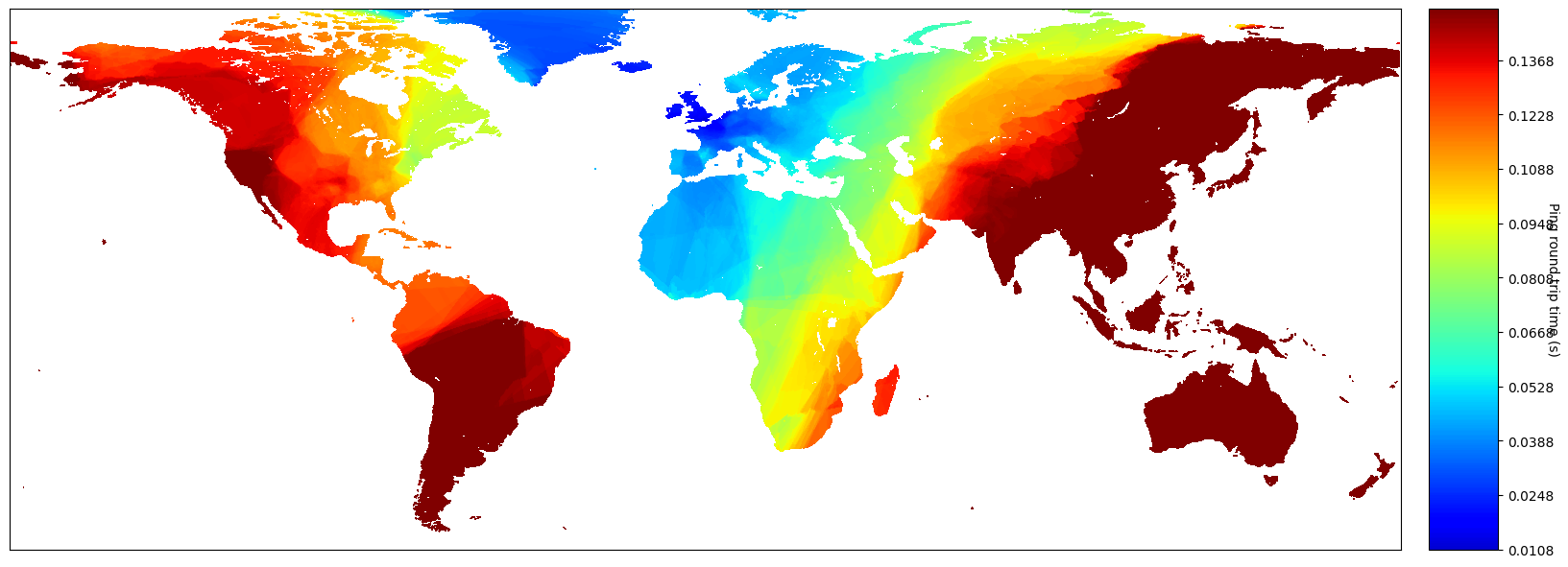this post was submitted on 19 May 2025
1 points (100.0% liked)
Map Enthusiasts
4669 readers
10 users here now
For the map enthused!
Rules:
-
post relevant content: interesting, informative, and/or pretty maps
-
be nice
founded 2 years ago
MODERATORS
you are viewing a single comment's thread
view the rest of the comments
view the rest of the comments

Could you calculate shortest distance to each point (using for example haversine formula) and then divide each time you got by 2*distance/c to get some sort of normalized score for connectivity? Anything closely approaching 1 would be the optimal connectivity to that destination.
Edit: c would be speed of light
In normal fiber optic cables the signal only travels at ~60% of speed of light. I dont think hollow core fibers are widely adopted yet for undersea cables, so the results should reflect that. Ofcourse you also have delays due to the relay stations in between, but those are probably quite small.
LEO satellite comms coming online to route some of this traffic should be closer to c since will relay satellite to satellite to the last mile ground station to then reach the destination.
It is faster per distance covered, but the distance that needs to be covered is significantly larger so it cancels out i think.